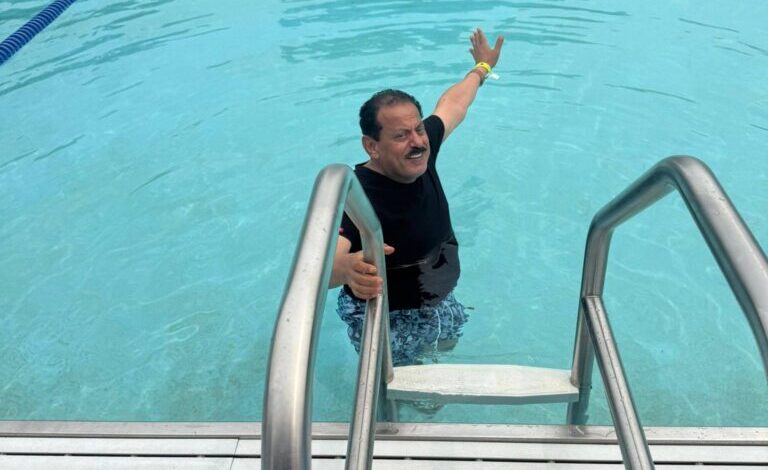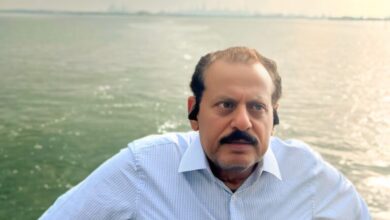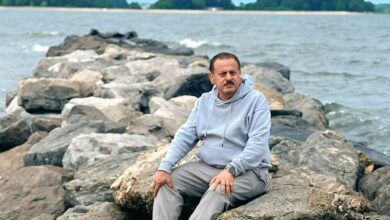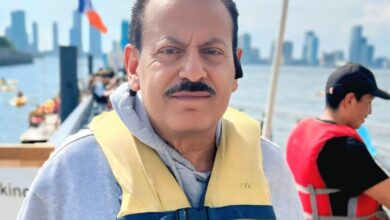The Keeper of Papers

Yemeni mp
Ahmed Saif Hashed
Here I stand at the threshold of a new path in my life, a turning point that will likely lead me toward a career in law or the judiciary. In either case, I seek justice; I search for it. I want to lift the burdens of oppression from people’s shoulders. Justice is a noble human endeavor, a lofty mission. Did not the philosopher, writer, and French literary figure Voltaire say, “The greatest human act is to restore justice to those who have lost it”? Justice is a sacred calling and a source of conscience that deserves to be revered even more than our routine acts of worship from dawn until the late hours of the night. Is it not a prophet who said, “An hour of justice is better than sixty years of worship”? How much we need justice in this unjust world!
Oppression is a harbinger of widespread ruin. As the sociologist Ibn Khaldun once stated, “Oppression heralds the destruction of civilization.” How revolutionary and great was Che Guevara when he said, “I feel on my face the pain of every slap directed at the oppressed.” A living conscience refuses to rest as long as there is injustice somewhere in the world. As long as we can do something to resist this injustice, why shouldn’t we? And as long as we can step onto the platform of justice to establish fairness, why postpone it until the Day of Judgment? That voice still echoes in my ears:
“How many are the wronged in prisons?”
The sound of oppression is persistent and heavy. Injustices wound the soul, leaving scars in awareness, conscience, and memory.
I have four years ahead of me, and I must dedicate them to perseverance and effort as much as I can. What was once a mere dream and wish four years ago has become a reality today. I have always leaned toward law more than toward prosecution. Yet my inclination toward the judiciary is stronger, as the realization of justice is tied to it.
The judge, in exercising his duties, swiftly implements and upholds justice. The judge should be the most concerned party in determining rights, ensuring fairness for the oppressed, and lifting burdens from their shoulders. The power of the judge can be a pathway to the paradise of conscience, in a faster and more succinct manner.
Perhaps this was my initial impression. I once debated this matter with a friend, perhaps my colleague Abdu Taha, if memory serves me right. I concluded that there is a connection and complementarity among these roles; one should not diminish one profession in favor of another, as the best outcome is determined by all three. The judge, the prosecutor, and the lawyer are all integral efforts that collectively achieve the desired justice.
I said to myself, “It is important that I strive and exert myself from this moment onward, as I still have four long years ahead to choose my path.” The choice feels distant, but I can also embrace love now. Excelling in my studies is a great responsibility that I must rise to meet. I am now capable of bearing that burden.
On my first day at law school, I felt that a new life awaited me. It was as if I were stepping into a world I had never experienced before. The prospect of mingling with others had seemed like a distant dream, one I wished had materialized during my high school years in that proletarian school. When I entered the military, despair caught up with me, and I doubted I would ever find the social interactions I longed for. Yet here I was today, facing that dream for the first time. This is where my aspirations will be realized, and I could win the heart of a girl I love, who loves me in return.
How wonderful it is to find love in university, to have someone who motivates you to study and excel, someone whose eyes turn to you as you strive. There is a deep satisfaction in persevering to witness beauty, tenderness, and a life pulsating with light and hope every day.
Yet, my experiences in love and matters of the heart reveal that I am a failure with honors. Instead of purchasing elegant notebooks to jot down lessons and notes, I bought “shop registers.” I took pride in them, and I even made sure to wrap them each day in new khaki paper, as the previous one would wear out after just one day’s use due to my rough handling and the weight of the registers inside.
My approach to the registers and the khaki bags was military, characterized by a lack of delicacy and etiquette. Some of the female students whispered among themselves, referring to me as “the keeper of scrolls.” Occasionally, I would insert one register into another after the first one crumpled at a corner or was stretched due to the roughness of placing the registers inside.
I always wanted to be unique in various aspects, but with these registers and papers, my uniqueness resembled that of “Fattouta” with his mismatched pants and shirt.
I considered liberating myself from this predicament by purchasing a leather bag, but the length of the registers exceeded that of the bag, and it was too narrow to accommodate four or more of them.
I thought of a diplomatic bag, but I saw no students carrying their notebooks in such a manner. The incident involving our friend Mohammed Saleh from Yafea, who had been sent by the Ministry of Interior to study at law school, made us hesitant to replicate his actions. On the first day, before we got to know the faculty, Mohammed Saleh, who was relatively older than us, arrived in an impressive suit and distinctive glasses, carrying a diplomatic bag filled with his notebooks. As he entered the lecture hall, we followed, crowded around him, thinking he was a professor. To our surprise, he was reserving a seat for himself, and upon questioning him, we discovered he was a student, not a professor. We burst into laughter.
* * *






